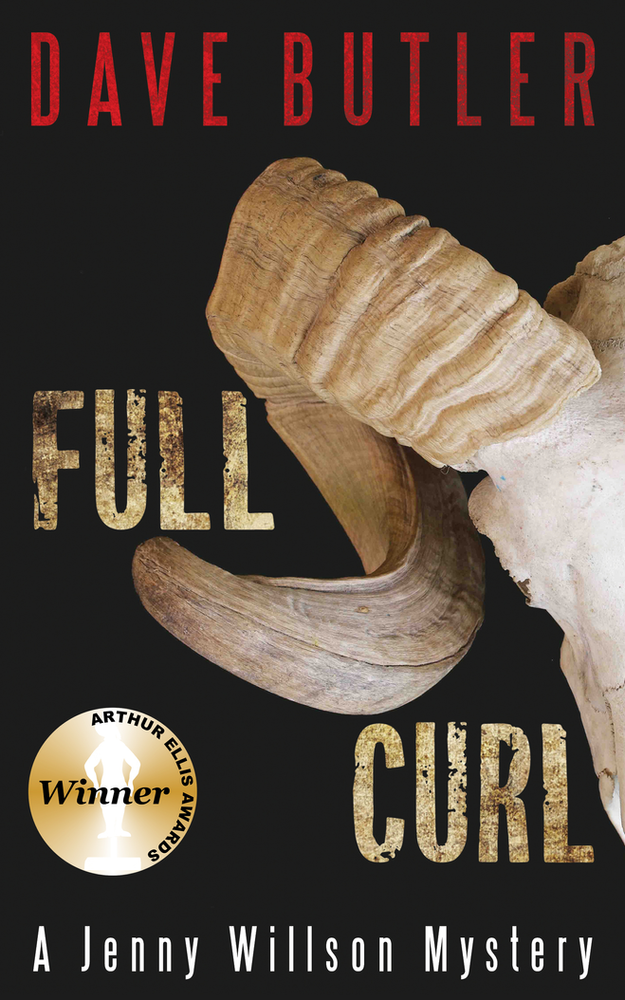By Dave Butler
Can fiction – particularly eco- or environmental fiction – be too political?

Recently, I had the honour of joining authors Merrilee Robson, Candas Jane Dorsey, and Hyacinthe Miller on a panel in the Crime Fiction stream of When Words Collide, an inspiring annual writer’s/reader’s conference based out of Calgary, Alberta. We were told that we all “successfully work social/political/environmental themes” into our mysteries. I’ll humbly accept that description.

Our panel was titled “Message in a Novel” and we focused our hour-long discussion on the question of whether topics are too political to be written about, so much so that readers will be turned off, or whether there are ways to write about sensitive topics without making a novel unsalable or unreadable.
It was a fascinating discussion that ranged between heated debate and gentle consensus. In only an hour, we didn’t arrive at a clear answer to the question.

However, like my posting here at Free Range Writers in April of 2020, the panel’s conversation did encourage me to think more about the role of ecofiction as an agent of social change.
First, The Cambridge History of the American Novel defines ecofiction as “an elastic term, capacious enough to accommodate a wide variety of fictional works that address the relationship between natural settings and the human communities that dwell within them. The term emerged soon after ecology took hold as a popular scientific paradigm and a broad cultural attitude in the 1960s and 1970s.” In many ways, I see ecofiction offering an integrated view of reality, where the ecological elements of stories do not simply provide background but instead are deeply essential to setting, plot, character development and even point of view.
Considering that definition, and given the potential for ecofiction to cover a wide range of issues from climate change, protection of wildlife and wild spaces, to environmental degradation from human activity, can ecofiction be too political?
The answer to that, I suggest, is largely in the perceptions of readers.
However, there are many authors throughout history who successfully tackled contentious topics with an environmental theme, and whose works stand the test of time, cultural perspective, and social media rankings. From Jack London, D. H. Lawrence, John Steinbeck (Grapes of Wrath linked drought and poverty in 1939) and Arthur Herzog (whose 1977 novel Heat is often described as the first anthropogenic global warming novel), to Ray Bradbury, Kurt Vonegut, Peter Matthiessen and Edward Abbey, many of our most beloved authors tackle tough issues with skill, pushing readers to think and care and change their behaviour.

Some use satire, a popular tool to tackle difficult issues through applying humor, irony, exaggeration, or ridicule to expose and criticize people’s stupidity or vices, often in utopian or dystopian genres. Think George Orwell’s Animal Farm (1945); he described it as his first book in which he “tried with full consciousness of what he was doing, to fuse political purpose and artistic purpose into one whole.” Orwell’s most famous work – 1984 – left us with terms we still use today: Orwellian, Big Brother, and newspeak.
Even more common is the skillful description of places in a way that creates sympathy and caring on the part of readers. Edward Abbey’s description of desert landscapes fits in the category as well as any. Similarly, developing likeable characters (with unlikable characters as counterpoints) that evolve through compelling characters arcs encourages readers to care.
One of my favourite fiction-writing tools, however, is shining a spotlight on the complexity of environmental and land use issues by offering a suite of characters with a range of perspectives and motivations. If one character is a rabid environmentalist, another (either protagonist or antagonist) might be a greed-driven developer lacking in ethics and morals.
But that’s too easy – create a good guy and a bad guy, then call it a day.

Instead, it’s the disparate range of characters between those two bookends that in my opinion adds flavour and depth and sophistication to a story. A recent example that I felt did a truly admirable job of this is Kim Stanley Robinson’s The Ministry for the Future (2020; Orbit – Hachette Book Group Inc.). Robinson creates a series of fictional eyewitness accounts to tell how climate change will affect us all. It is masterful, thought-provoking, and hopeful, and yet, is close enough to what we’re already experiencing to avoid a dystopian label.
In a final analysis, I believe that ecofiction is only too political ifan author is so focused on a single perspective, a single way of seeing the world, that she/he misses the nuances, the shades of gray in these complex issues, and as a result, angers or turns off at least half the potential readers.
As ecofiction writers, we do have the opportunity to have our works act as agents of social change. But that must be done with skill, nuance, and ensuring we present a range of perspectives in an entertaining, authentic, and compelling way. If we can do that, we just might encourage readers to think about the world in a different way.
To me, that’s success.
